
Health and Care Research Wales annual report 2023 / 2024
Foreword
As we reflect on what has been another year of pioneering and cutting-edge research across our community, I want to say diolch o’r galon to everyone who continues to lead and support research activity in Wales, and to all those who have dedicated their time to help shape and participate in this research. It’s fantastic to see so many people getting involved.
There have been, and continue to be, challenges. Research and development must always keep pace with changes in policy, industry, funding and delivery – this is how we innovative, learn and grow. Our vision is to look with confidence towards a bright future for Welsh research to realise our ambitions – whether that’s increasing our capacity and capability for conducting more clinical trials; making Wales the number one place to invest in; bolstering research across our funded infrastructure and universities, or embedding research and delivery across our NHS services. We will ensure today’s research becomes tomorrow’s care.
This year has seen good progress against our plans to drive improvements in health and social care research, support routes into research careers and to fund and organise research. We have seen Health and Care Research Wales’ offer spotlighted on the global stage, closer working with partners in social care in Wales, and the development of the Health and Care Research Wales Evidence Centre. A major new project to promote research among nurses, midwives and the 13 allied health professions has been launched and the Health and Care Research Wales Faculty goes from strength to strength with key developments in the delivery of public involvement initiatives running alongside all that we do.
Through Health and Care Research Wales, the Welsh Government promotes and supports health and care research to ensure it is of the highest international scientific quality, is relevant to the needs and challenges of health and social care in Wales, and improves the lives of people and communities.
The use of the research evidence base in health and social care is as crucial as ever. As the newly-appointed Cabinet Secretary for Health and Social Care, research and development will continue to play an important role in improving outcomes. I look forward to working with the Welsh research community to seize opportunities and build on what we have learned to date.
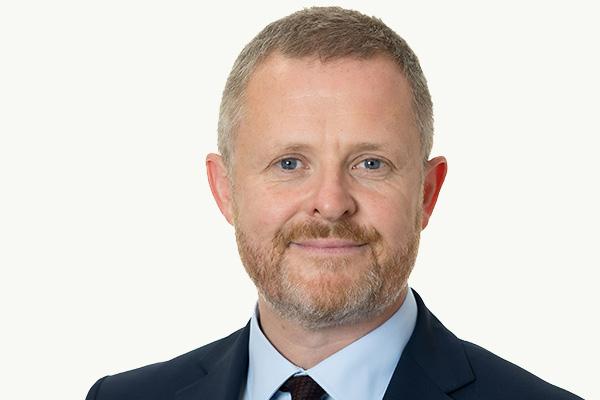
Jeremy Miles MS
Cabinet Secretary for Health and Social Care
Our year in research
Last year, we launched our three year plan - Research matters: our plan for improving health and care research in Wales, with four key aims - setting the agenda for health and social care research, funding and organising research, building capacity and capability in health and social care research, and using research to improve health and social care. Since then, a tremendous amount of work has taken place to implement that ambitious plan not only by Health and Care Research Wales but across our partners in Welsh Government, industry, academia and NHS organisations, to support our shared goal of improving health and care research in Wales.
Particular achievements of the last twelve months include work to develop research strategies across a range of areas with our partners – in, for example, public health, nursing and allied health professions, health sciences and genomics. Creating realistic but ambitious research plans which embed research and innovation in the work of health and social care organisations and are owned by those organisations has been a key aim for us. Crucial to this endeavour has been the NHS R&D framework, co-produced with health boards and trusts and other stakeholders and now formally issued by Welsh Government as a Welsh Health Circular.
We have also made great progress in reviewing our existing infrastructure investments in health and care research over the last 12 months and engaging with universities and others to develop plans for future investments to support new areas where Welsh researchers can really make a difference both in Wales and across the UK and internationally.
There have been major efforts across the UK – with Wales playing its full part – to improve the way we work with industry partners to deliver commercial clinical research and to support the life sciences sector. New partnerships with individual companies like Moderna and BioNTech and more recently with the Association of the British Pharmaceutical Industry are bringing both greater investment from industry in our research delivery infrastructure and closer working relationships on research and innovation.
I finish my five year secondment into Welsh Government as director of Health and Care Research Wales in September 2024. The first two years of that period were dominated by the COVID-19 pandemic – it was a vivid, real-world demonstration of how important research and innovation is to improving health and care in Wales and across the UK. There were many lessons from the way research delivered new diagnostic, therapeutics and vaccines and tackled new problems like Long COVID – we must not lose sight of those lessons and seek to carry them forward into our future work.
I am hugely thankful to many colleagues I have worked with over the last five years – both in Welsh Government and in Health and Care Research Wales, in health boards and trusts and other provider organisations, in universities, and in the wider UK system of government and other funders for health and care research. It has been a busy and demanding five years, but in all the many challenges, frustrations and often frenetic pace of the work, it is so important we do not lose sight of its purpose. Fundamentally, this work is all about patients, people and communities – and the way research can improve their lives through better health and social care.

Professor Kieran Walshe
Director of Health and Care Research Wales
- Welsh Government trade mission
-
In June 2023 Health and Care Research Wales was part of a Welsh Government trade mission to the United States to showcase Wales as a unique and attractive location to deliver a wide range of studies.
The team met with innovators and scientists from all over the world to highlight our offer to the life sciences sector, which includes nationally coordinated site identification; a One Wales approach to costing and contracting, and agile research delivery processes. Our experience in multiple disease areas included oncology, haematology, diabetes, respiratory, cardiovascular and infectious diseases, diabetes, respiratory, cardiovascular and infectious diseases.
- Social care research roadshow
-
June 2023 also saw the second event in a new opportunity for social care professionals across Wales to gather and discuss social care research. The social care research roadshow series, co-hosted between Health and Care Research Wales and Social Care Wales, provided a platform for peer learning, networking and sharing best practice.
The event was attended by over 100 delegates who participated in parallel sessions and discussion covering diverse themes. Presenters from Aberystwyth, Bangor, Cardiff and Swansea Universities, the University of South Wales, Kings College London and the Centre for Public Policy discussed themes including Social Services and Well-being (Wales) Act, support for unpaid carers, taking care of the whole elder person, including equality, diversity and inclusion and mental health, and the use of technology in adult social care.
- Health and Care Research Wales Evidence Centre
-
Following its launch last year, the Health and Care Research Wales Evidence Centre published its first work programme outlining the Centre’s health and social care research priorities for summer/autumn 2023.
The programme shared the details of 12 evidence review topics and six new research studies to provide Ministers and other decision-makers with vital evidence to tackle health and social care challenges facing Wales. Focusing on addressing a wide range of issues, such as anti-smoking support, access to mental health services and patients’ needs in emergency dental care, the Centre is working with collaborating partners across Wales to deliver the new programme.
- Health and Care Research Wales’ annual conference
-
Former Minister for Health and Social Services, Eluned Morgan MS, praised the crucial role of good research in improving health and social care services and outcomes in Wales ahead of Health and Care Research Wales’ annual conference.
Last year’s conference theme was “People make research”, with speakers and topics highlighting the vital part individuals and delivery teams have played in Wales’ research successes over the past year. Both the conference, held at the Swansea Arena, and the 2022-23 annual report provided opportunities to look at how to capitalise on this momentum, enhance and safeguard the future of health and care research in Wales; from career development opportunities for research staff at all levels, to significant new funding commitments and calls for greater parity of funding across the UK.
- PRIORITY project
-
The PRIORITY project, commissioned by Wales’ Chief Nursing Officer, Chief Allied Health Professions Adviser and Director of Health and Care Research Wales, and co-led by Jayne Goodwin, National Head of Research Delivery (NMAHPs) at Health and Care Research Wales, and Anita Atwal, will develop an action plan to increase capacity and capability for doing and using research in the nursing, midwifery and 13 allied healthcare professions.
Research-led practice has a significant positive outcome for patients and embedding research throughout health and social care is a key element of Health and Care Research Wales’ NHS R&D Framework, which was published in 2023.
An action plan will be co-produced with the professions, health boards and trusts, as well as universities, who will have an opportunity to share current capacity and tackle barriers to undertaking research in their roles and within the NHS and social care. The plan will take a workforce and system-wide approach to ensure nurses, midwives and allied health professionals are able to access, embrace and value research, as well as build research talent pipelines for Wales.
- Research delivery
-
Throughout 2023-24 we have supported research delivery in Wales through studies such as CMVibe, TIPTOE and STRAVINSKY, working with primary and secondary care providers to help set up trials at pace and provide opportunities for eligible people to get involved.
- Public involvement in research
-
March 2024 marked two years since Health and Care Research Wales, alongside other funders, regulators and research organisations, signed up to a new shared commitment to improve vital public involvement in research. Member organisations, including the Health Research Authority, National Institute for Health and Care Research (NIHR) and NHS England, work with the public to bring about changes which will drive up standards in health and social care research. By providing signposting and resources, the shared commitment aims to help researchers engage with members of the public, to help ensure their research is inclusive, ethical and responsive to the needs and interests of their target population.
In the past year, we collaborated with the NIHR on allyship work, focusing on what researchers need to be aware of when involving under-served community groups. This collaboration has been instrumental in highlighting the importance of inclusivity and understanding within the research community.
We have successfully completed the first four-year cycle of the "Discover Your Role" Public Involvement action plan, which aimed to enhance public involvement in health and care research in Wales. Following this, we held three Public Engagement and Involvement forums to capture barriers to public involvement, such as issues related to resources, inclusivity, impact, and payments. The insights gained from these forums have informed the development of the next stage of our "Discover Your Role" public involvement action plan.
- Health and Care Research Wales Faculty
-
Our Health and Care Research Wales Faculty continues to go from strength to strength, providing a coordinated approach to career development and support at every level. The Faculty currently has over 200 members with over £3million of investment committed. It has held its first conference, learning and development days, a Fellowship writing day and 13 webinars covering topics including understanding loneliness and social isolation, experiences and insights from re-applying for research funding, and why we all need a little bit of health economics in our lives.
Additionally, it has facilitated a Leadership Development programme, with 13 members, and a Faculty Mentoring programme, with 12 matched pairs. We have also developed a Faculty Learning and Development plan. The Faculty is one of the most important initiatives that we have set up, and we are committed to continuing to encourage a broad base of talent across the health and care system and academia, and develop and support research leaders of the future.
Research achievements
Research Delivery
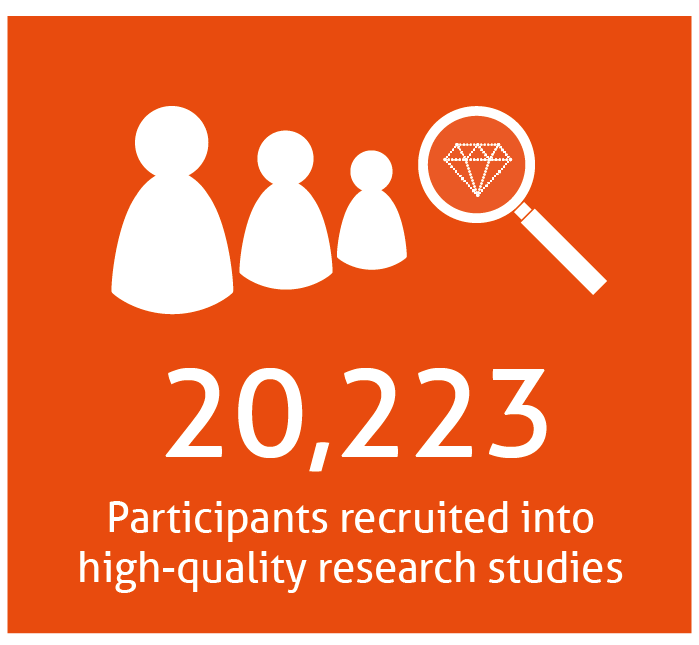
20,223 participants recruited into high-quality research studies

210 Active commercially sponsored studies
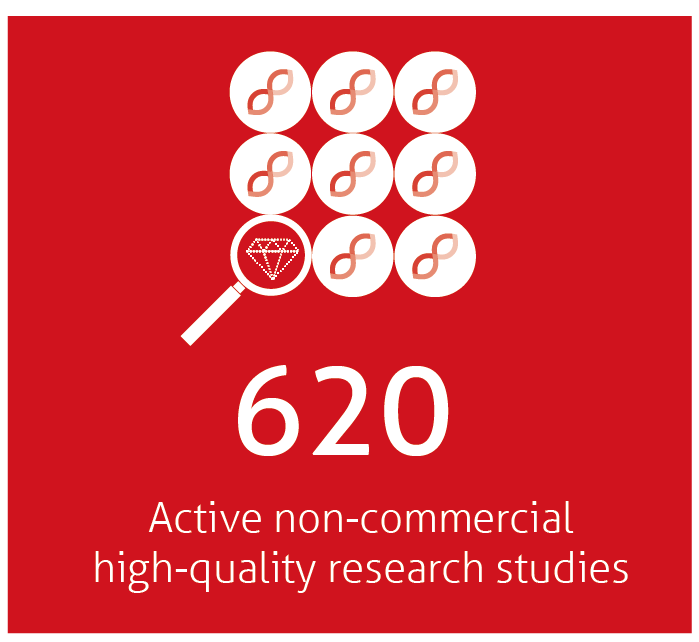
620 Active non-commercial high-quality research studies
Our funded centres
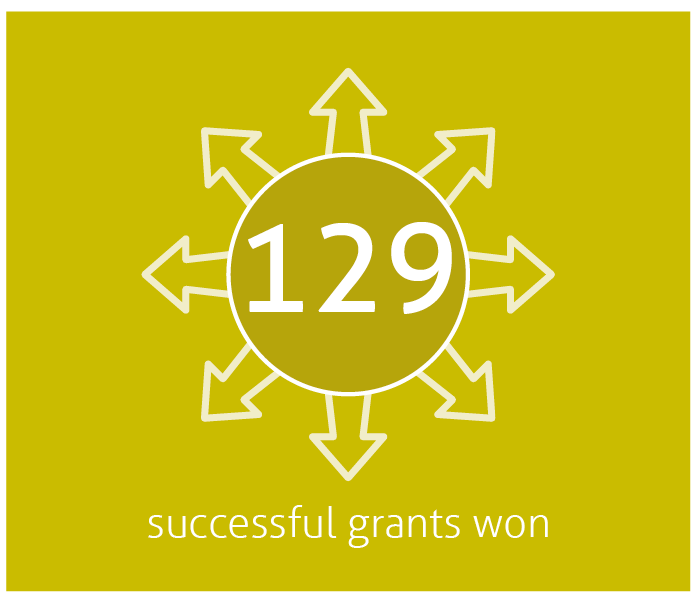
129 successful grants won
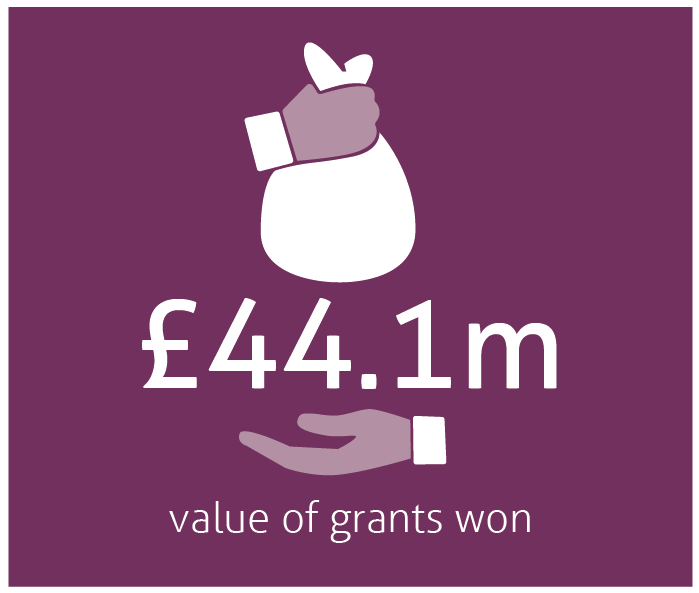
£44.1m value of grants won
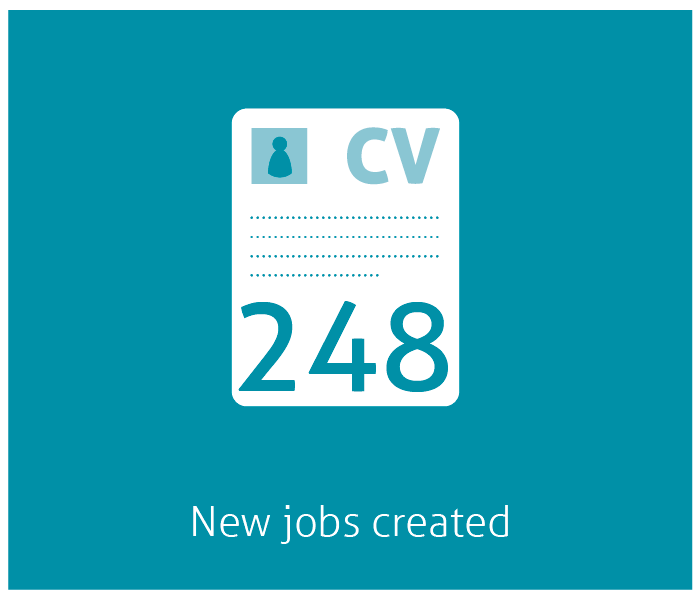
248 new jobs created
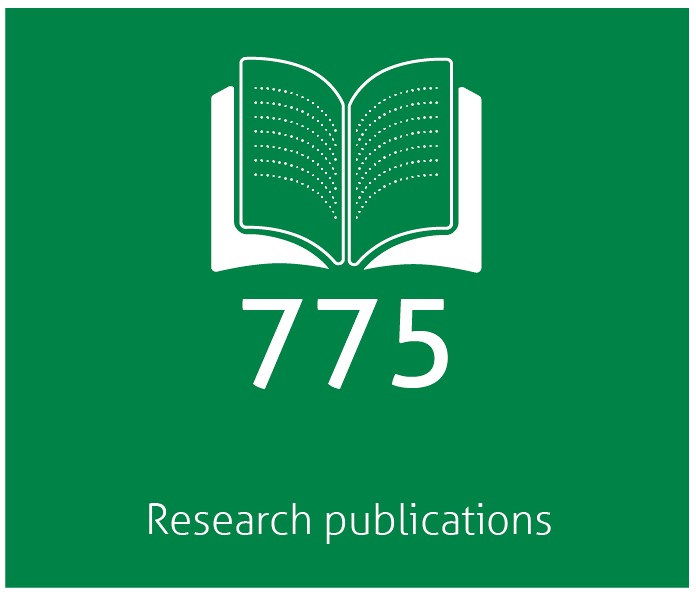
775 research publications
Our funded schemes*
*Calls that opened in financial year 2023-24 - latest Research Training Awards from July 2024 not included.
£5,137,181 across 10 schemes and 27 awards
Research matters – people in research
Wales has a richness of extremely talented people who are designing, participating and facilitating research, and we are proud to celebrate their achievements. Here are just a handful:
- Dr Manju Krishnan
-
 Dr Manju Krishnan, Consultant Stroke Physician at Swansea Bay University Health Board and Health and Care Research Wales’ Deputy Specialty lead for Stroke, led a team at Morriston Hospital on a significant international study into when to administer vital blood-thinning medication to stroke patients. The ELAN study concluded that giving patients anticoagulants soon after a stroke due to atrial fibrillation is both safe and effective, regardless of whether the stroke was mild, moderate or severe. This will inform guidance for stroke patients, helping reduce the risk of further strokes and ultimately save lives. The team at Morriston Hospital, and another Welsh centre, Ysbyty Glan Clwyd in Rhyl, were in the top five out of 103 recruiting centres across Europe, the Middle East and Asia. Dr Krishnan said she hoped the study would boost Wales’ international reputation for health research, adding:
Dr Manju Krishnan, Consultant Stroke Physician at Swansea Bay University Health Board and Health and Care Research Wales’ Deputy Specialty lead for Stroke, led a team at Morriston Hospital on a significant international study into when to administer vital blood-thinning medication to stroke patients. The ELAN study concluded that giving patients anticoagulants soon after a stroke due to atrial fibrillation is both safe and effective, regardless of whether the stroke was mild, moderate or severe. This will inform guidance for stroke patients, helping reduce the risk of further strokes and ultimately save lives. The team at Morriston Hospital, and another Welsh centre, Ysbyty Glan Clwyd in Rhyl, were in the top five out of 103 recruiting centres across Europe, the Middle East and Asia. Dr Krishnan said she hoped the study would boost Wales’ international reputation for health research, adding:Seeing Wales take such a prominent role in a big international study will help us expand our research portfolio thereby increasing the opportunity for Welsh service users to participate in stroke research. I would love to see new stroke trials initiated from Wales in the future.”
- Professor Alex Tonks
-
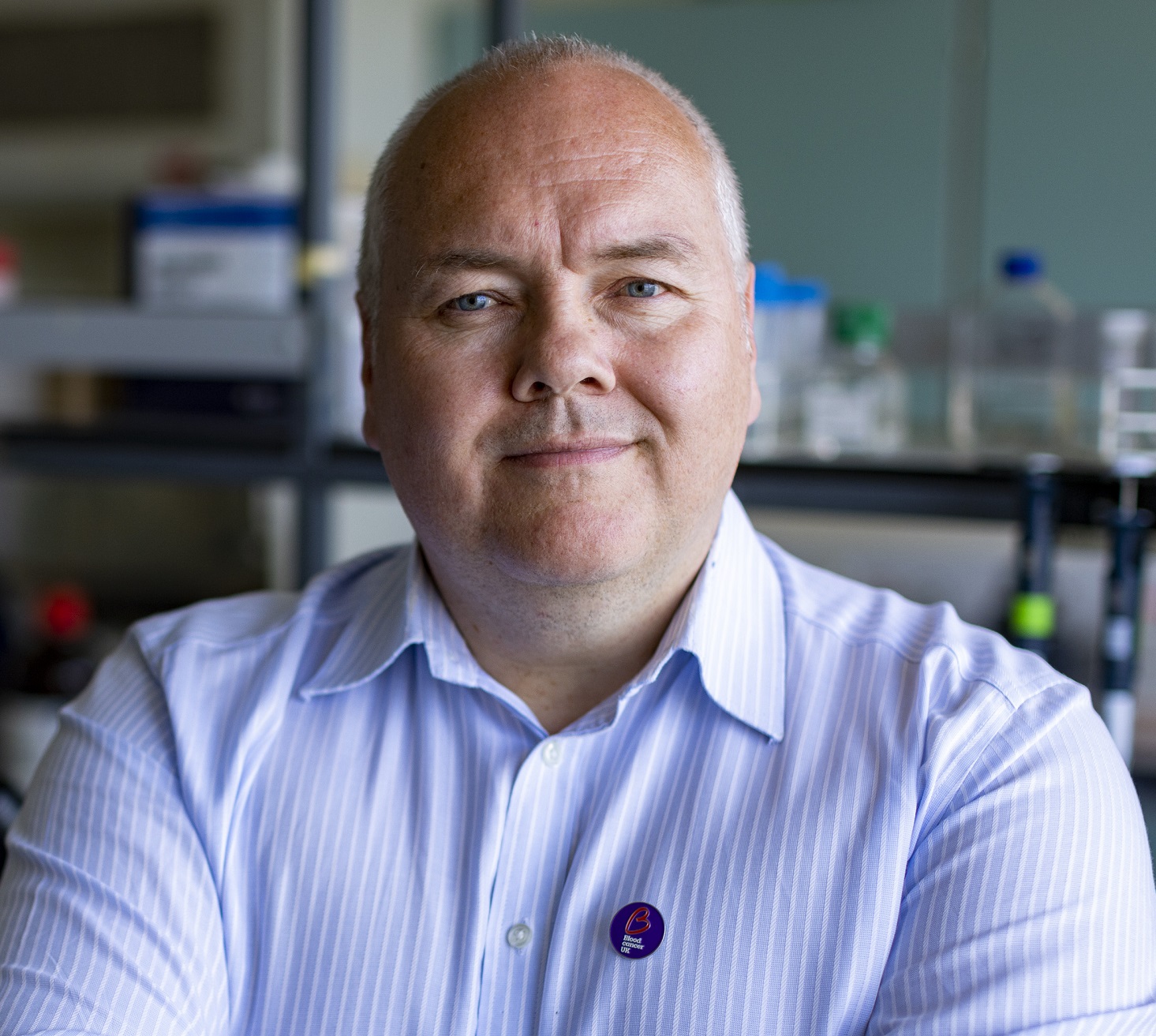 Funding managed by the Health and Care Research Wales Faculty has enabled Professor Alex Tonks, from the Division of Cancer and Genetics at Cardiff University to support PhD student and Faculty member, Owen Hughes, on research into a “precision” treatment for Acute Myeloid Leukaemia, a form of blood cancer. Blood cancer is the fifth-most common cancer in the UK, but its many variations have historically made it notoriously difficult to treat. There are over 100 different types of Acute Myeloid Leukaemia (AML), each caused by a different mutation. Prof Tonks said:
Funding managed by the Health and Care Research Wales Faculty has enabled Professor Alex Tonks, from the Division of Cancer and Genetics at Cardiff University to support PhD student and Faculty member, Owen Hughes, on research into a “precision” treatment for Acute Myeloid Leukaemia, a form of blood cancer. Blood cancer is the fifth-most common cancer in the UK, but its many variations have historically made it notoriously difficult to treat. There are over 100 different types of Acute Myeloid Leukaemia (AML), each caused by a different mutation. Prof Tonks said:I’m passionate about supporting early career researchers and teaching the next generation of scientists that will take this research forward and generate those treatments for those patients.”
Owen added: “My undergraduate studies provided me with a good broad understanding of cancer, but I knew I wanted to study it in more detail. I was drawn to this particular study as I was excited that it could lead to the development of new targeted therapies, improving outcomes for patients. I feel very supported by those around me in the haematology department. I have learned a great deal in a short amount of time and am eager to continue learning. I am extremely grateful to Health and Care Research Wales for funding the project. Without their support I would not have been able to embark on this journey and progress through the early stages of a career in research.”
- Hajar Al Ghabari
-
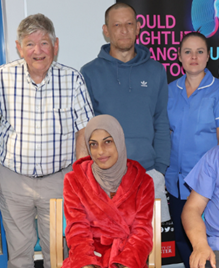 Hajar Al Ghabari, 26, from Bangor (pictured in red) came to live in North Wales around three years ago after fleeing the war in Syria. Having been diagnosed with kidney disease in her teenage years she is now waiting for her second transplant after a previous transplant failure. In late 2023 she joined the Nightlife trial at Ysbyty Gwynedd, which was the first hospital in Wales to take part in assessing whether overnight dialysis, performed three times a week in a hospital, improved the quality of life of people with kidney failure compared to those who have shorter dialysis sessions during the day. Since joining the trial Hajar said her quality of life had massively improved. She added: “When I receive my treatment in the day I feel a lot more fatigued and I suffer from headaches so having my treatment during the night when I’m asleep has made such a huge difference to me. I have a lot more awareness during the day now, I can go and spend time with my friends and family and I feel so much more energetic
Hajar Al Ghabari, 26, from Bangor (pictured in red) came to live in North Wales around three years ago after fleeing the war in Syria. Having been diagnosed with kidney disease in her teenage years she is now waiting for her second transplant after a previous transplant failure. In late 2023 she joined the Nightlife trial at Ysbyty Gwynedd, which was the first hospital in Wales to take part in assessing whether overnight dialysis, performed three times a week in a hospital, improved the quality of life of people with kidney failure compared to those who have shorter dialysis sessions during the day. Since joining the trial Hajar said her quality of life had massively improved. She added: “When I receive my treatment in the day I feel a lot more fatigued and I suffer from headaches so having my treatment during the night when I’m asleep has made such a huge difference to me. I have a lot more awareness during the day now, I can go and spend time with my friends and family and I feel so much more energeticI feel like I’ve got my life back.”
- Libby Humphris
-
 Libby’s research journey began in 2016 after years of lived experience with chronic health conditions including arthritis, adrenal insufficiency, fibromyalgia, chronic fatigue syndrome and more, which led to her to taking part in the STAR study, which looked at starting a family while living with an autoimmune rhematic disease, and then becoming part of the public involvement community via the FAMILIAR study led by Zoë Abbott. It was her involvement in those studies, that led her to secure her current role as Co-lead of the Health and Care Research Wales Evidence Centre for PPI (Patient and Public Involvement).
Libby’s research journey began in 2016 after years of lived experience with chronic health conditions including arthritis, adrenal insufficiency, fibromyalgia, chronic fatigue syndrome and more, which led to her to taking part in the STAR study, which looked at starting a family while living with an autoimmune rhematic disease, and then becoming part of the public involvement community via the FAMILIAR study led by Zoë Abbott. It was her involvement in those studies, that led her to secure her current role as Co-lead of the Health and Care Research Wales Evidence Centre for PPI (Patient and Public Involvement).Her role involves co-chairing meetings with the Public Partnership Group (PPG) members, preparing agendas and discussion topics, and working with Dr Denitza Williams on various tasks such as reviewing documents and budget planning. She also attends Advisory Board and co-applicant meetings, representing the public voice.
Dr Williams said: "It has been a pleasure to follow Libby's journey into research and to work alonsgide her in her public involvement co-lead role with the Health and Care Research Wales Evidence Centre. Libby is a core member of the team at the centre involved in all levels of governance. As someone with lived experience of a number of chronic health conditions, Libby has been able to provide valuable insights to help shape research, and her contribution to patient and public involvement has been exemplary."
- Regina Reyes
-
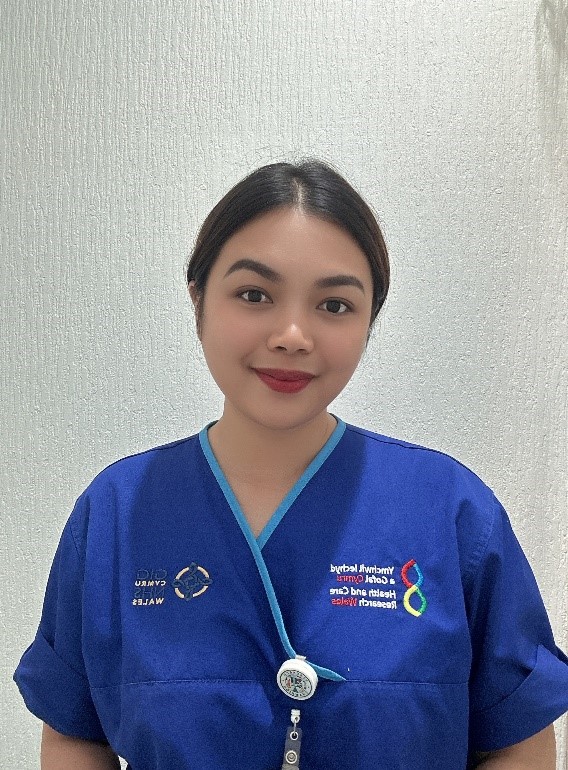 Regina Reyes is a Clinical Research Nurse Specialist at Aneurin Bevan University Health Board, and was appointed Chair of the Philippine Nurses Association UK (PNA UK) in Wales this year, which has contributed to the Health and Care Research Wales PRIORITY project. A strong advocate for research, Regina met with King Charles III at Buckingham Palace as part of a delegation of internationally educated nurses, which led to networking opportunities within the Philippine Nurses Association UK and an approach for Regina to Chair the PNA UK network in Wales. In this role she has been able to start the conversation of research awareness among the International nursing community.
Regina Reyes is a Clinical Research Nurse Specialist at Aneurin Bevan University Health Board, and was appointed Chair of the Philippine Nurses Association UK (PNA UK) in Wales this year, which has contributed to the Health and Care Research Wales PRIORITY project. A strong advocate for research, Regina met with King Charles III at Buckingham Palace as part of a delegation of internationally educated nurses, which led to networking opportunities within the Philippine Nurses Association UK and an approach for Regina to Chair the PNA UK network in Wales. In this role she has been able to start the conversation of research awareness among the International nursing community.She said: “A lot of people were shocked – they wanted to know how I got to where I am, because it's not well known that research is happening and being led by people from our community. That’s why the PRIORITY project fitted perfectly – it’s a way of showing what we can do to help people carry out research and to support and embed it across our NHS in Wales.
My message really to everyone, and especially the international nursing community, is that the research is for everyone – you don’t have to be a PhD graduate, you don't have to have a Masters’ or ten years of experience. You can be part of research from different backgrounds and there are a lot of opportunities.”
- Professor Paul Willis
-
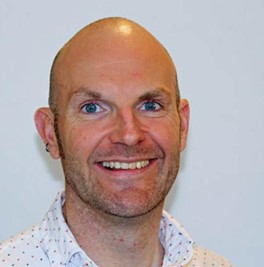 In September 2023 Professor Paul Willis was appointed the inaugural Director of CARE – the Centre for Adult Social Care Research, set up with £3m of funding from Health and Care Research Wales. A Professor of Adult Social Care, he is a registered social worker, qualifying in Tasmania, Australia, and has been a social work educator for 15 years.
In September 2023 Professor Paul Willis was appointed the inaugural Director of CARE – the Centre for Adult Social Care Research, set up with £3m of funding from Health and Care Research Wales. A Professor of Adult Social Care, he is a registered social worker, qualifying in Tasmania, Australia, and has been a social work educator for 15 years.Professor Willis’ research background is in social gerontology and his research focuses on issues of social inclusion and care in later life, particularly for older people belonging to minoritised groups with care and support needs. Between 2016-2023 Professor Willis was a Senior Fellow of the NIHR School for Social Care Research.
He said:
I am proud to be working with the team and collaborators at CARE to build a new research programme to help inform and improve the delivery of high-quality social care to people with care and support needs in Wales.”
Since Paul's appointment, an additional 10 team members have been appointed to CARE, including seven researchers and four professional support staff. The centre now has a lived experience advisory board, which includes people of different ages with experience of accessing social care services, and is also setting up a practitioner forum to advise on research topics and priorities. The CARE team are currently planning for the official centre launch on 17 October 2024.
Looking ahead
It has been yet another fruitful year for Health and Care Research Wales. Since publishing Research Matters: Our plan for improving health and care research in Wales 2022-25, we have moved quickly on its implementation, and it is the extensive partnership and collaboration that takes place across all Health and Care Research Wales activity that makes many of our achievements possible.
It is an incredibly exciting time for research. There are more funding opportunities available through our investment in NIHR programmes, through our new Integrated Funding Scheme and through our Faculty personal award schemes. We need to continue to benefit from these opportunities and from the advances in care and treatment they produce. Following the implementation of our new approach to funding research centres, we will see a range of new awards - some of which will provide sustainability funding to support existing high-performing centres, and some of which will provide catalytic funding to boost activity in areas of Welsh research strength that can make a real difference to addressing unmet health and social care need.
We recognise that the research workforce in Wales is critical to our success and we will continue to ensure that all health and social care researchers are offered rewarding and challenging careers, so we attract the most talented people. Our Faculty will grow even further as we go into the next year helping to develop the next generation of principal and chief investigators in the NHS, social care sector and in our higher education institutions. Alongside this, we will be publishing an action plan from the PRIORITY project that will set the actions we will take to increase capacity and capability for doing and using research in the nursing, midwifery and thirteen allied healthcare professions. We will be also supporting the forthcoming R&I HealthCare Scientists strategy and work with the pharmacists community to support the growth of research within their profession.
Life sciences will continue to be high on our agenda and it is crucial that Wales plays its full part in some important developments at a UK level, particularly: UK-wide partnerships brokered by the Office for Life Sciences with major pharmaceutical companies; the Lord O’Shaughnessy review of support for industry-funded research, initiated because of concerns that the UK was losing ground to other countries in commercial research; and the UK Life Sciences Vision, launched in 2021, with a series of mission areas such as dementia, cancer, obesity, mental health and addiction. We see the investment from the new Voluntary Scheme for Branded Medicines Pricing, Access and Growth (VPAG) as game changing for our NHS infrastructure, and will be working closely with our NHS and industry partners to increase our capacity to undertake commercial research and strengthen our One Wales approach. This will speed up our delivery which will ultimately deliver real benefits to healthcare and patient care and play our part in boosting the UK position in commercial global research. Alongside this, we will be supporting the ministerially-led Tackling Cancer programme and setting ourselves ambitious research targets, including delivering the pipeline of experimental cancer vaccines for Welsh patients developed by BioNTech and Moderna.
The people of Wales are at the heart of our strategies and we will be publishing our first Health and Care Research Wales Inclusivity Plan in the Autumn. This will set out how we will be embracing the diversity in our communities across our activities and how inclusive research can help tackle the longstanding inequalities in our health and care system and increase research equity. We will also be refocusing our Discover Your Role public involvement programme to ensure we are addressing the challenges and barriers but also celebrating the successes we see across the research system.
We will continue to focus on enhancing our data-for-research capabilities, working, alongside partners such as SAIL and Digital Health and Care Wales. This is an area where, thanks to our longstanding investment in SAIL, Wales has a distinct and well-recognised competitive advantage across the UK and beyond. We will develop and build on opportunities to use data in research in innovative ways to support both policy and practice and the delivery of research across the NHS and social care.
We will see a change in leadership in Wales during the next year with the appointment of a new Chief Scientific Adviser for Health. Once in post, they will play a crucial role in setting future priorities, championing the importance and value of research at the highest level, and enhancing our collaboration across Wales and at a UK level. We believe they will be inheriting a thriving and effective health and social care research system and will be able to build the achievements of our outgoing director, Professor Kieran Walshe, and the Health and Care Research Wales team.
We would like to extend our deepest thanks and gratitude to everyone who plays a part in helping us realise our ambition of today’s research leading to tomorrow’s care.
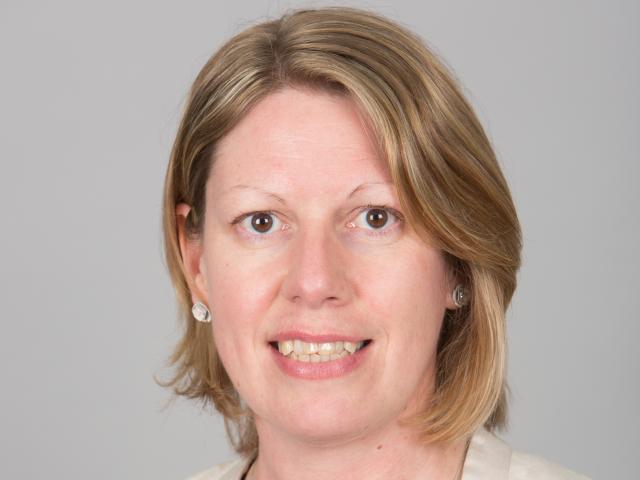
Carys Thomas
Head of Policy, Research and Development Division (RDD), Welsh Government

Michael Bowdery
Head of Programmes, Research and Development Division (RDD), Welsh Government